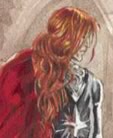Forum
Welcome Guest |
|
|---|---|
 Author Author |
Topic: |
|---|
| Galadivren |
|
||||||||
| MooMoo |
|
||||||||
| Galadivren |
|
||||||||
| oceanlily |
|
||||||||
| Lynk |
|
||||||||
| Lokyt |
|
||||||||
| Galadivren |
|
||||||||
| Lokyt |
|
||||||||
| tdellaringa |
|
||||||||
| Lokyt |
|
||||||||
| Eowyn-fan |
|
||||||||
| Lokyt |
|
||||||||
| keja |
|
||||||||
| Lokyt |
|
||||||||
| Eowyn-fan |
|
||||||||
| Lokyt |
|
||||||||
| keja |
|
||||||||
| Periar |
|
||||||||
| Lokyt |
|
||||||||
| Lenielestel |
|
||||||||
| Lokyt |
|
||||||||
| Alexanda |
|
||||||||
| Lokyt |
|
||||||||
| Alexanda |
|
||||||||
| Lokyt |
|
||||||||
| Alexanda |
|
||||||||
| Lokyt |
|
||||||||
| Alexanda |
|
||||||||
| Lokyt |
|
||||||||
| Alexanda |
|
||||||||
| JackieBlack |
|
||||||||
| Lokyt |
|
||||||||
| JackieBlack |
|
||||||||
| Galadivren |
|
||||||||
| Lenielestel |
|
||||||||
| Members Online |












